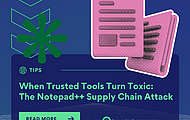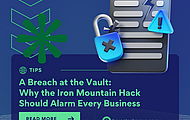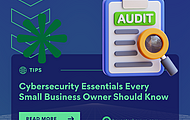How to Erase your Personal Data Online and Why you Should

How to Erase your Personal Data Online and Why you Should
Not many people understand that every link that you click, every page that you open, and even every search that you inquire online creates a digital footprint or digital trail that follows you wherever you go. The average person does not pay close attention to how their online behavior can have an effect on their everyday lives however this is crucial to avoid being a cybercrime victim.
Before we dive in to learn about the different ways to protect yourself we should look into how companies track your personal information. People tend to give away more information about themselves than they intend to or would ever do willingly. Most companies use what is referred to as “Pixel Tracker”, which are tiny, invisible images embedded in websites, emails, and ads across the internet. Their purpose is to act as digital breadcrumbs, allowing companies to learn more about user engagement and monitor activity. By analyzing your personal data companies can personalize ads and predict future spending habits, this might not sound all that dangerous but it can be if it falls into the wrong hands.
Here are a few steps that can help you reduce or remove your footprint from the internet and protect yourself from online hackers:
1- Delete old emails that you no longer use:
Many of us have signed up for social media platforms or created emails that we no longer use. Even if you aren’t actively using those accounts, they can still leave you open to privacy and security risks. Identifying all of your accounts and closing the ones that you no longer use is the first step to protecting yourself. This includes everything from streaming services to online shopping accounts. Once that is in place you should add a two-factor authentication process when possible to create an extra layer of security since all communication has to be verified by notifying your phone to gain access.
2- Use a data removal service
For those that have a more complex footprint, a data removal service might be a good thing to look into. It is an efficient way for you to manage your data online as well as your online presence. Most sites are pay-for-service however this method might be a lifesaver for some. Do some research and find out which one is the best for you or your company and sign up with them. Once you have provided all of your necessary information to them most likely they will contact you to verify your identity and start finding out about your personal reach or trace.
3- Be wary of your privacy settings
Privacy settings on the internet and even on your phone can be a tricky subject. It is important to know what they are and how to manage them to protect your personal information. Regardless of the platform that you are using, start by reviewing their privacy policies and pay close attention to the terms and agreements before you click on that little checkbox. Unfortunately, sometimes this information is not easily found and you might need to do some digging so it's considered more of a “buyer beware” situation.
In conclusion, in an age of technology, the average person has no idea how much of their information is being stored and shared online. This is a double-edge sword that can come back to harm not only your financials but also your personal life. Be mindful of the websites that you visit, the links that you click, and even the sweepstakes that you sign up for, the more you monitor the information that you add online the lesser the chance you have of being a cyber victim.
If you have any questions or would like us to provide additional resources for personal and business protection, contact us for a FREE consultation.
‹ Back







